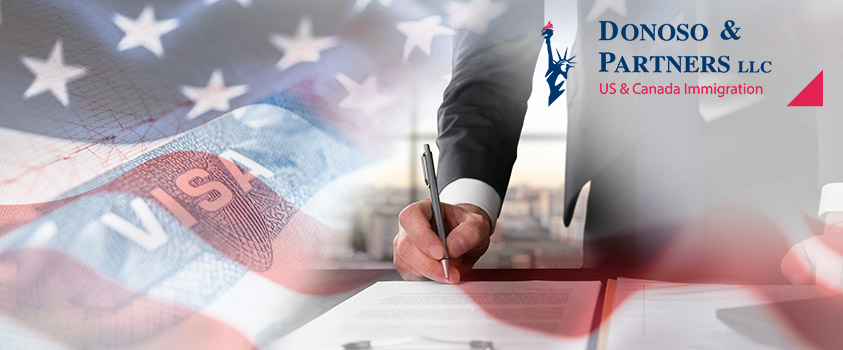Washington, D.C., July 14, 2020: On July 14, 2020, the Trump Administration issued an executive order ending long-standing preferential treatment for Hong Kong under the United States-Hong Kong Policy Act of 1992 (“Act”). The Act provided the authority for Presidents to suspend Hong Kong’s treatment as a separate foreign state if “Hong Kong is not sufficiently autonomous to justify treatment under a particular law of the United States, or any provision thereof, different from that accorded the People’s Republic of China”.
The executive order was issued in response to the People’s Republic of China’s (PRC) legislative actions which imposed new security measures on Hong Kong and reduced their overall autonomy from PRC. The executive order will likely have a significant impact on U.S.-Hong Kong diplomatic relations, international trade, and immigration.
U.S.-Hong Kong Immigration Impact:
The executive order eliminates preferential visa treatment for foreign nationals born in Hong Kong as well as those who hold Hong Kong SAR passports. The U.S. Department of State (DOS) and the U.S. Department of Homeland Security (DHS) are expected to issue guidance in the coming weeks on the implementation of the executive order which will effectuate the following changes:
-
- Individuals who were born in Hong Kong who seek U.S. permanent residence will be charged against the immigrant visa quota for PRC. This will result in longer visa wait times for foreign nationals born in Hong Kong pursuing their green card pursuant to the EB-1, EB-2, EB-3 and EB-5 immigrant visa categories due to the current PRC visa backlogs.
- Hong Kong will be removed from its participation in the Diversity Visa Program;
- Hong Kong is removed from the Visa Waiver Program as it applies to Guam and the Commonwealth of the Northern Mariana Islands (CNMI);
- H-1B and H-4 visas will be valid for a maximum of 12 months, reduced from 60 months;
- L-1 and L-2 visas will be valid for a maximum of 24 months, reduced from 60 months;
- O visas will be valid for a maximum of three months, reduced from 60 months;
- B-1/B-2 visa validity will be unchanged at a maximum of 10 years, but Hong Kong passport holders will be required to register their visas in the Electronic Visa Update System (EVUS), as PRC nationals have been since 11/2016.
- Visa validity for F-1 and J-1 visas remains unchanged.
While the President’s executive order can potentially be challenged in court and Congress could pass legislation to provide relief to nationals from Hong Kong, the executive order will likely impact speed at which Hong Kong-born nationals will be able to secure permanent residence in the U.S. as well as the frequency with which individuals in temporary nonimmigrant visa status need to renew their visas.
The U.S. Departments of State and Homeland Security are expected to issue specific guidance on implementation of the executive order in the next week.
We will continue to report on updates concerning the implementation of this executive order as more information becomes available.
Donoso & Partners, a leading immigration law firm based in Washington, D.C., will continue to report on developments regarding the immigration law and policy through our news section of donosolaw.com.
SCHEDULE A CONSULTATION TODAY.
Donoso & Partners, LLC provide assistance with review and advice regarding eligibility for visas to the U.S. or Canada.
